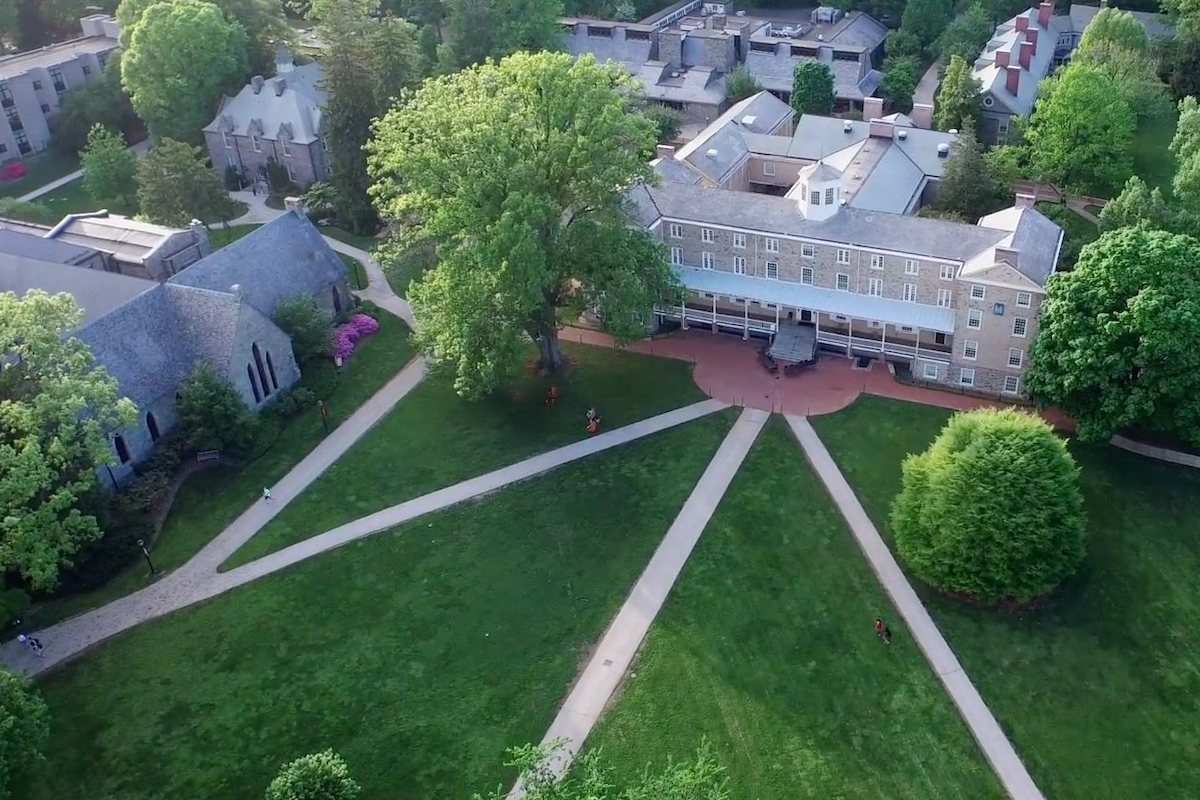When Good Academics Do Bad Things
Key Figures
The article centers on Margaret Munn, a mature student in a teacher's college program at the University of Western Ontario (UWO), and her experiences in a course on Indigenous education.
The Course
The course, "Indigenous Education: Towards a Decolonizing Pedagogy," is described as focusing less on practical teaching skills and more on abstract concepts like intersectionality and decolonization, often involving self-reflection on personal biases.
Munn's Experience
Munn, unfamiliar with the prevalent campus culture of social justice activism, repeatedly asked questions challenging the course material and its methodology. This led to conflict with instructors and fellow students.
The Conflict
The article details the conflict that arose from Munn's questioning, highlighting the contrast between her perspective and the established norms within the university environment. Her actions were viewed as disruptive by some, while others saw her as raising legitimate concerns.
The Journalist's Perspective
The author, an investigative journalist, initially received the story with a clear understanding of who was the victim and the villain. However, their investigation revealed complexities, suggesting that the situation was more nuanced than initially presented. The focus shifts to the institutional forces that contributed to the conflict rather than solely on the moral character of the individuals involved.
Key Points
- The article critiques the emphasis on theoretical concepts in the course over practical teaching methods.
- It highlights the clash between established campus culture and an individual's perspective outside of that culture.
- The author emphasizes the importance of considering institutional factors in understanding conflicts.
What follows are notes from an 18 March 2025 speech delivered to the University of Western Ontario law-school chapter of the Runnymede Society, a membership-based organisation that promotes the rule of law, constitutionalism, and individual liberty.
Since this is a law school and many of you are aspiring lawyers, I’d like to start by telling you a little bit about my brief and extremely unsuccessful legal career—which I think explains why I got into journalism.
There are a variety of reasons why I wasn’t much good at being a lawyer—but I think the single biggest reason was that I had a lot of trouble internalising the moral logic of a client’s case if I didn’t believe in it. I resented the idea that I was required to look at the facts of a case and side with my client. Maybe he or she was wrong?
And this is a huge problem, of course, because legal ethics require that your client receives zealous legal representation. But in my case, it wasn’t really zealous. It was more like intellectually conflicted.
For two years, I worked as a tax lawyer in New York City, focusing on cross-border mergers, acquisitions, and asset transfers. Clients would come to us with some complicated transaction, and it was our job to craft arguments as to why these deals shouldn’t be taxed.
The people around me at my law firm were great at this, which is why they were successful. But in my case, I’d often look at the details and say to the client, “Oh come on. Who are we fooling here? Why don’t you just pay your taxes? I mean, how do you think public roads get built?”
It turns out that most clients don’t like getting that kind of response.
But it also turned out that the same intellectual qualities that made me wholly unsuited to law-firm work were useful when it came to investigative journalism, which is what I spend a lot of my time doing at Quillette.
Race and Social Panic at Haverford: A Case Study in Educational Dysfunction
Not so long ago, one might have been able to count on the naturally oppositional reflexes of young adults as a counterbalance to this kind of crowdsourced social panic.

One of the great things about my job is that the stories I work on often surprise me as I learn new facts. I’ve done numerous investigative stories about universities, in particular. It’s become my specialty. And in pretty much all cases, the story I ended up publishing was different from the story that I thought I was going to publish when I set out investigating it.
And that was the case with my November 2024 article about the University of Western Ontario (UWO) teachers college, entitled “Lessons from a Teachers-College Battle Over Free Speech and ‘Decolonization.’”
Lessons from a Teachers-College Battle Over Free Speech and ‘Decolonization’
University of Western Ontario instructors spent months denouncing an outspoken education student who’d asked awkward questions about Indigenous reconciliation—until a UWO tribunal concluded they’d violated her rights.

As with a lot of the investigative stories I work on, the source who brought me the story seemed to have a clear idea of who the victim in this story was, and who the villain was.
And this, of course, is completely normal. The reason people bring these kinds of stories to investigative journalists in the first place is almost invariably that they think some wrong was committed to someone, and they want the world to know about it.
But usually, the rights and wrongs of the tale are a little bit more complicated than your sources know—or, at least, than they are willing to admit. Which is to say that the victims aren’t quite as sympathetic as they originally seem, and the villains aren’t quite as nefarious as they originally seem.
Usually, in fact, the more interesting story isn’t really about the moral qualities of the people involved, but the larger institutional forces that drove them into conflict. And that was very much the case with this particular article.
I’m sure a lot of you have read the article. But as I’ve mentioned, I was a law student once. And I didn’t always do the assigned reading before class. So let me just take a moment to summarise it.
The tale centres on a woman named Margaret Munn, a middle-aged educator, someone roughly my age, who was born in Scotland, but who’s lived in Canada for most of her adult life.
Munn enrolled in UWO’s teachers college in Fall 2022 because she wanted to improve her professional credentials, and get more full-time work in the Ontario public-school system. But, as you can imagine, she was a little bit of a fish out of water among her classmates—most of whom were half her age.
What’s more, Munn doesn’t do social media. She’s not into politics, or activism, or hashtags. So when she arrived on campus in late 2022, she didn’t really know where the landmines are when it comes to discussing issues surrounding social justice and identity politics.
And this became a problem for her when she started participating in classroom discussions—particularly, as you might imagine, in a required first-year course called Indigenous Education: Towards a Decolonizing Pedagogy.
Now, at this point, I’d like to emphasise that I believe there is value in educating Canadian teachers about issues surrounding Indigenous students, many of whom face special challenges. As I mentioned in the article, the high-school dropout rate for Indigenous students is something like four times the rate for non-Indigenous students. And teaching on remote Indigenous reserves comes with its own special set of difficulties and special skill requirements.
And so it absolutely makes sense that aspiring Canadian teachers should have at least some grounding in the circumstances and history of Indigenous communities.
But, as anyone who’s been around a Canadian university in the last decade or so will know, most of the material contained in courses such as Towards a Decolonizing Pedagogy doesn’t actually consist of practical insights into how to go about the day-to-day job of working in Indigenous communities.
Instead, there’s an enormous focus on academic jargon and faddish abstract concepts lifted from American campuses—such as intersectionality, privilege hierarchies, critical studies, anti-capitalism, and, yes, decolonisation.
By Munn’s account, in fact, Towards a Decolonizing Pedagogy isn’t really an academic class, but rather a consciousness-raising session in which students are relentlessly instructed to probe their personal thinking and family histories for mental contaminants linked to racism and white supremacy. The written class materials that she shared with me very much supported that description.
Now, the average Canadian university student in his or her late teens or early twenties is used to all of this. You know the drill. You keep your mouth shut, nod your head, promise to interrogate your internalised white supremacy or whatever, and read back to the instructor the preferred form of social-justice confession.
All of this has become a cynical, well-established ritual of Canadian academic life. I’m guessing most of the people in this room have been through this drill multiple times.
It’s like when I went to a largely Christian school in Montreal when I was a teenager, and they said grace before meals, and sang God Save the Queen. I said the words because everyone else did.
But Munn hadn’t been to a university since the 1990s. And so all of this was like a foreign language to her. She kept raising her hand in class, and asking questions such as, What does it even mean to ‘decolonise’ a school system?
This article is for paying subscribers only. Subscribe now Already have an account? Sign inWas this article displayed correctly? Not happy with what you see?
If you often open multiple tabs and struggle to keep track of them, Tabs Reminder is the solution you need. Tabs Reminder lets you set reminders for tabs so you can close them and get notified about them later. Never lose track of important tabs again with Tabs Reminder!
Try our Chrome extension today!
Share this article with your
friends and colleagues.
Earn points from views and
referrals who sign up.
Learn more
Save articles to reading lists
and access them on any device